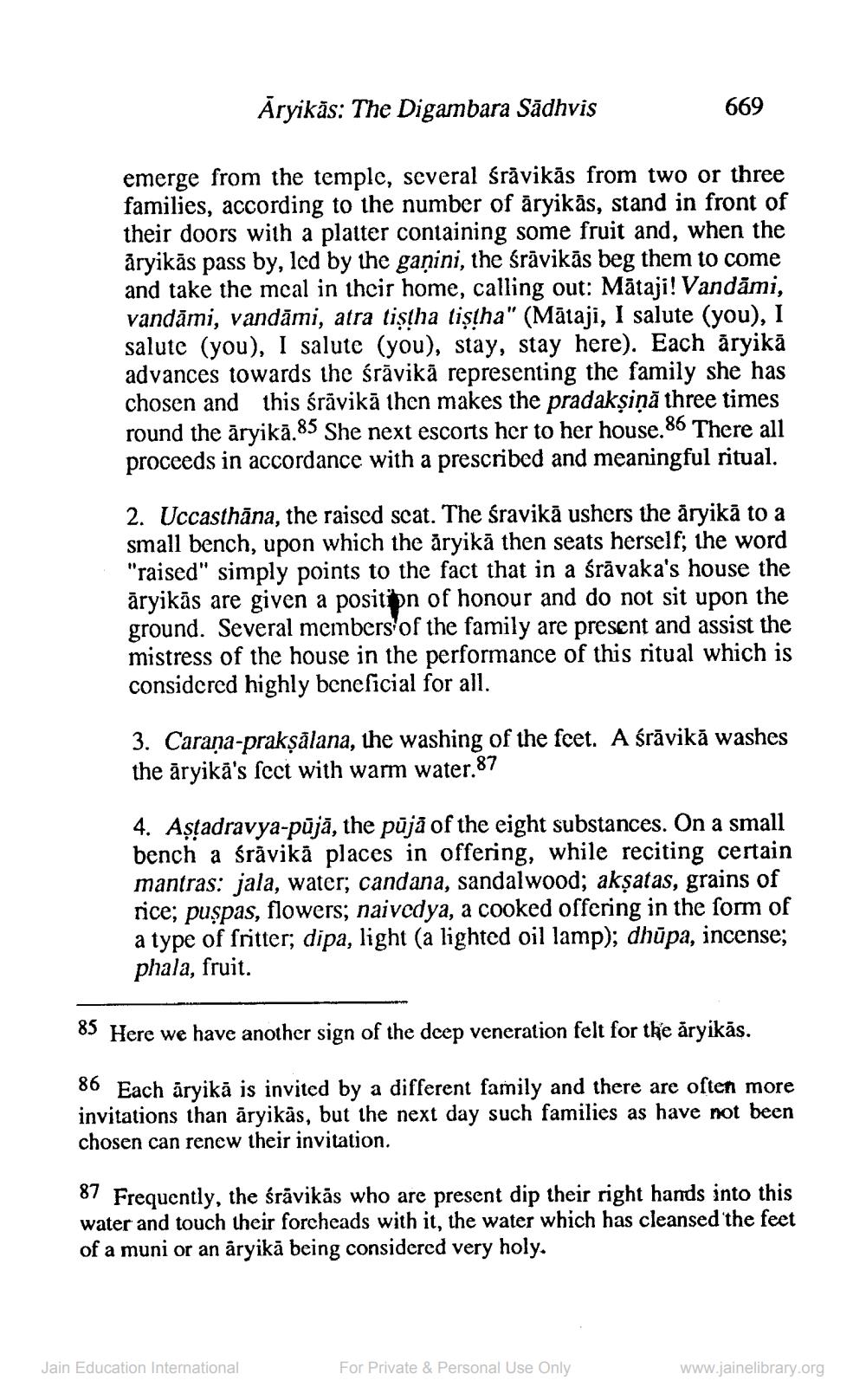________________
Āryikās: The Digambara Sādhvis
669
emerge from the temple, several śråvikās from two or three families, according to the number of āryikās, stand in front of their doors with a platter containing some fruit and, when the áryikās pass by, led by the gaṇini, the śrāvikās beg them to come and take the mcal in their home, calling out: Mātaji! Vandāmi, vandāmi, vandāmi, atra tiştha tiștha" (Mātaji, I salute (you), I salute (you), I salute (you), stay, stay here). Each äryikā advances towards the śrāvikā representing the family she has chosen and this śrāvikā then makes the pradakşiņā three times round the āryikā.85 She next escorts her to her house. 86 There all proceeds in accordance with a prescribed and meaningful ritual.
2. Uccasthāna, the raised scat. The sravikā ushers the äryikā to a small bench, upon which the åryikā then seats herself; the word "raised" simply points to the fact that in a śrāvaka's house the āryikās are given a position of honour and do not sit upon the ground. Several members of the family are present and assist the mistress of the house in the performance of this ritual which is considered highly beneficial for all.
3. Carana-prakṣālana, the washing of the feet. A śrāvikā washes the āryikā's sect with warm water.87
4. Astadravya-pūjā, the pūjă of the eight substances. On a small bench a śrāvikā places in offering, while reciting certain mantras: jala, water, candana, sandalwood; akşatas, grains of rice; puspas, flowers; naivedya, a cooked offering in the form of a type of fritter; dipa, light (a lighted oil lamp); dhūpa, incense; phala, fruit.
85 Here we have another sign of the deep veneration felt for the aryikās.
86 Each áryikā is invited by a different family and there are often more invitations than äryikās, but the next day such families as have not been chosen can renew their invitation.
87 Frequently, the śrāvikās who are present dip their right hands into this water and touch their foreheads with it, the water which has cleansed 'the feet of a muni or an aryikā being considered very holy.
Jain Education International
For Private & Personal Use Only
www.jainelibrary.org




